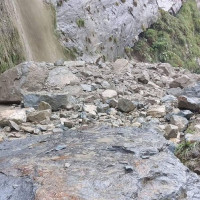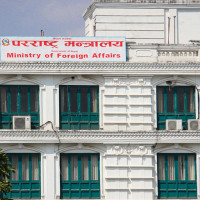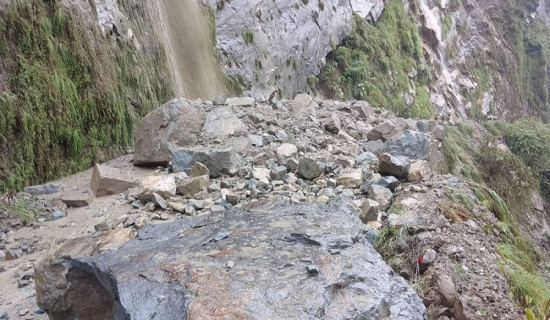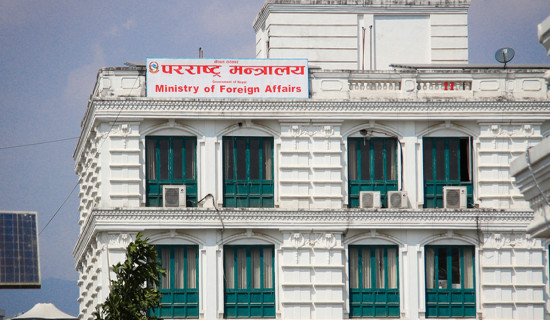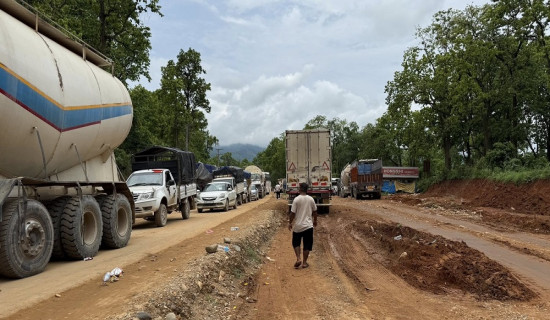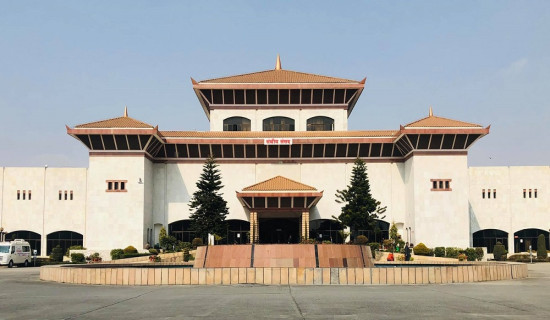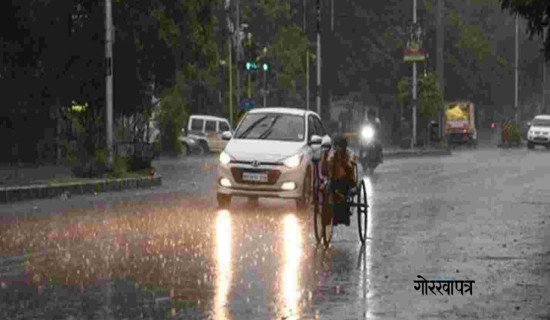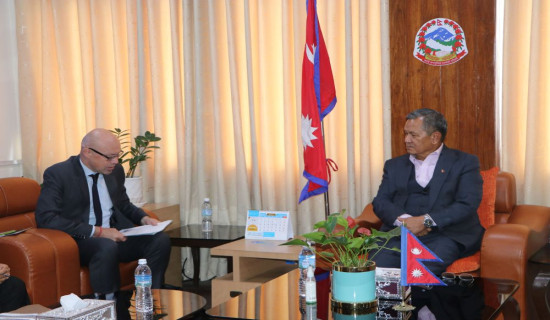- Thursday, 19 June 2025
'Sagarmatha Sambaad: An inspirational example for the world'
By TRN Online, Kathmandu, May 19: The United Nations Development Programme (UNDP) Administrator, Achim Steiner, has lauded Nepal’s ambitious target of achieving carbon neutrality by 2045, calling it an “inspirational example for the world.”
In a video message delivered at the ongoing Sagarmatha Sambaad (Everest Dialogue) in Kathmandu, Administrator Steiner expressed pride in supporting Nepal, alongside 140 other countries, in taking bold, transformational climate action. Through UNDP’s global climate initiatives, he emphasized, countries are working together to address the defining challenge of our time, that is, climate change.
“It is a great honour to address the Sagarmatha Sambaad,” he said, while adding that the event's powerful symbolism. Named after Sagarmatha, the Nepali name for Mount Everest, the highest peak on Earth, the dialogue embodies resilience and human perseverance.
He said that Nepal and the Himalayan region stand on the frontlines of the climate crisis.
“This unique ecological systemincluding glaciers and rivers, serves as a lifeline for nearly two billion people across South Asia. It sustains water resources, food security, livelihoods, and biodiversity, including many rare and endangered species,” he stated.
He stressed, “However, this extraordinary landscape is now under existential threat. Glaciers in the Hindu Kush-Himalaya region are melting at an alarming rate,65 per cent faster than a decade ago. The winter of 2024–2025 saw historically low snowfall, signaling a looming water crisis for millions.”
“These are not new revelations, they are urgent warnings,” Steiner said, “They demand immediate global action to adapt to and mitigate the devastating effects of climate change.”
Highlighting UNDP’s efforts, he noted that across the Asia-Pacific region, the organization is strengthening early warning systems and building resilience to natural disasters. In Nepal, he affirmed, UNDP is working hand in hand with the government and communities to safeguard mountain ecosystems and populations most vulnerable to climate threats.
He concluded, “We are proud to stand with Nepal and over 140 countries on the path to a sustainable, inclusive, and climate-resilient future.”





